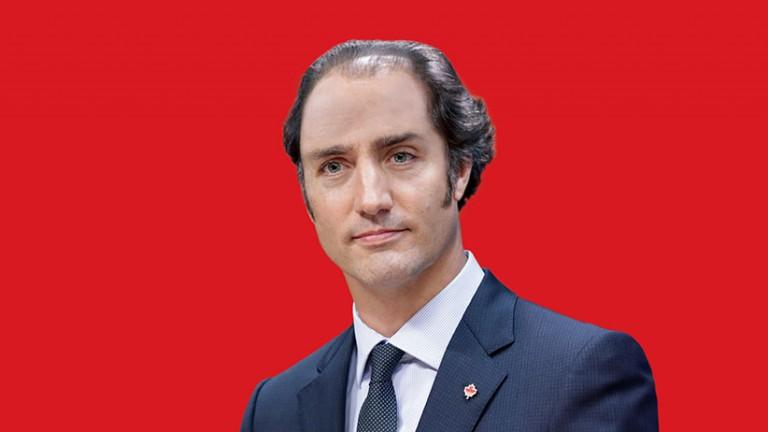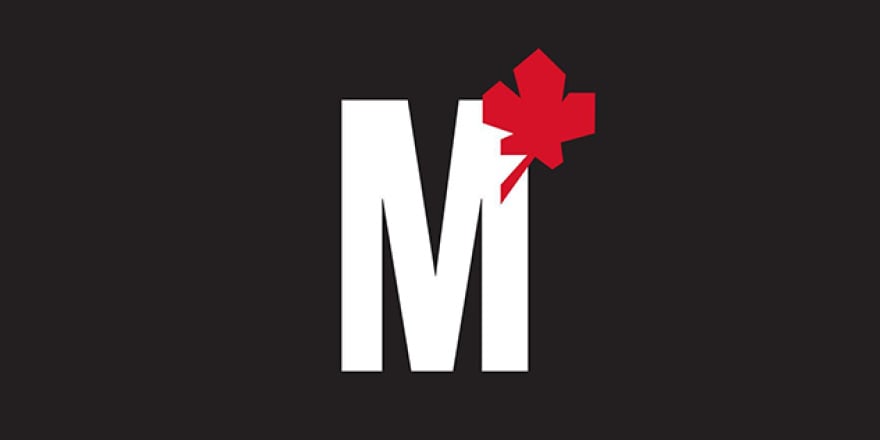Letters to the editor, January 2018: ‘Consensus was never possible’
Maclean’s readers write in about our cover story on Justin Trudeau’s ‘mid-life crisis,’ and more

Photo illustration by Stephen Gregory and Heshmat Saberi
Share

If you would like to respond or add new insight to a story or opinion piece in Maclean’s or on macleans.ca, send your letters to the editor to [email protected]. Letters should run no more than 250 words and should include your name and place of residence. If yours is chosen to be added to the month’s compilation of letters, it may be edited and/or condensed for clarity before being appended to this post.
The hydra of terror
In the Middle East, the states, religious sects, warlords and, of course, ISIS are all fighting in multiple directions (“How to fuel a war,” Iraq, December 2017). But in the West, we think that by bombing from the air and helping our current allies, we can bring order to a historically turbulent area. It is gratifying that ISIS is defeated, but soon another nasty faction or state will emerge. It’s time we stop these meddlesome incursions, except to provide humanitarian aid and protect countries like Israel. A peaceful Middle East will have a chance only if regional powers use their vast arsenals to erode cancers like ISIS and negotiate nation-building, with borders that make sense.
Henno Lattik, Montreal
PM’s report card
Good to see the comprehensive, halftime evaluation of the performance by the Liberals (“Mid-life crisis,” Politics, December 2017). The second half is surely full of challenges. I take issue with the following: “Polls show Andrew Scheer’s Conservatives running close behind Trudeau’s previously far-ahead Liberals.” One poll did—Insights West’s October survey commissioned by Maclean’s. It showed Liberal support at 35 per cent, the Conservatives at 33 and the NDP at 20. Compare that with Nanos Research findings. Its Nov. 14 update had the Liberals at 38 per cent, the Conservatives at 31 and the NDP at 18 per cent, consistent with most weekly scores in the past year. On the question of the preferred PM, Trudeau scored 45 per cent, Scheer 21 and Jagmeet Singh 9. On having the qualities of a good political leader, Trudeau scored 61 per cent, Green Party Leader Elizabeth May 38, Scheer 37 and Singh 35. John Geddes writes that “Trudeau’s 2015 platform was jammed with more than 200 promises.” Yes, 226, to be exact. The non-partisan group TrudeauMeter tracks performance daily. As of Dec. 13, 130 had been fulfilled or were being worked on and 58 had not been acted on. Of the 38 that had not been kept, ducking the electoral change promise pains me the most. Consensus was never possible, and the political will to act was surely lacking. Insights West’s October poll found that a staggering 67 per cent of Canadians rate the Liberals as good or very good at representing Canada internationally. That is reflected in a European survey of 18,000 respondents involving 25 countries, sponsored by the World Economic Forum. Canada was deemed to have the most positive influence globally by 81 per cent of respondents, as opposed to 40 per cent for the U.S. Surely, this is a win that we can all be proud of. So far, Trudeau and the Liberals have earned a B+ in my book.
Richard Ring, Grimsby, Ont.
The articles about Trudeau’s “mid-life crisis” and about Canadian debt were not far enough apart in the magazine for us to miss the connection. Trudeau and Morneau seem unconcerned with the economic health of Canada, only that cannabis be legalized and Trudeau’s climate change agenda be met. The fiscal missteps this government has taken—raising the federal debt level and taxes on Canadians living paycheque to paycheque, where one misfortune can bring down their house of cards—are disgusting! These two playboys must be made to pay the price for their games. Now Morneau may be caught in a trap of his own making, and all Trudeau’s defence is not going to make this go away. And to top it all off, they wanted to increase taxes on small businesses. These are the companies that create up to 70 per cent of Canadian jobs!
Susan A. Frandsen, Rockton, Ont.
I find the cover of the December issue offensive—the one featuring a Photoshopped image of a balding Justin Trudeau. Really! This ridiculous image reminds me of the immature tactics of awkward adolescents who, instead of engaging in thoughtful and mature communication, think it clever to deface a yearbook photo of one of their teachers. It’s true that Trudeau faces challenges partway through his term, however, I think it is disrespectful for journalists to brazenly alter anyone’s image in this way to attempt to make their point.
Melody Hamblin, Penticton, B.C.
I bumped into a lady neighbour friend of mine while picking up our mail at the community mailbox. We both had a rare, belly-shaking laugh while looking at my Maclean’s December cover picture of our Prime Minister wearing his dad’s hair. Thank you, Maclean’s.
Kevin Norman, Victoria
The power of a Grit
The graphic about Trudeau’s principal secretary Gerald Butts correctly describes him as the most powerful unelected person in Canada (“Friends of Gerry,” Politics, November 2017). While he exerts huge influence over our lives, the question is why he was awarded this position in the first place. The cardinal rule of hiring anyone for a position is that evidence must exist for background, education and work experience relevant to it. In Butts’s case, there is none. The so-called “brains” behind the election of disgraced former Ontario premier Dalton McGuinty, Butts then served him as key adviser, and that worked out as anything but a win for the Ontario taxpayer. The province now has the world’s largest per capita debt of any sub-federal jurisdiction globally, requiring an annual interest payment of more than $11 billion. Were Ontario a corporation, it would be in bankruptcy proceedings. There seems only one reason why Trudeau concluded Butts was qualified to be unleashed on the rest of Canada: he was Trudeau’s close friend. Little wonder the electorate has no faith in the ability of most elected politicians.
Rod Keelty, Sault Ste. Marie, Ont.
Albertan exceptionalism
The anecdotes in the story about Alberta’s NDP government suggest that many Albertans live in a spoiled child’s dream world where, in the absence of magic wands, a sense of exceptionalism has led to irrational petulance directed largely against the Notley government (“Regrets? They have a few,” Alberta, November 2017). Alas, the anecdotes are backed by polls. As a British Columbian, I am appalled to read the simplistic railing against the NDP’s work to raise the minimum wage, bring in a carbon tax, create farm safety legislation and build infrastructure as a stimulus measure. After all, the NDP inherited a province on its economic knees, largely as a result of decades of short-sighted Conservative fiscal mismanagement amplified by the Harper government’s gold rush mentality in regards to the tar sands. No Dutch disease for them, but that happened as the federal NDP said it would. It’s hard to see how Jason Kenney’s dog-whistle politics could improve any prospect for Albertans. A rationalist would hope that, after the floods in Calgary, the fires at Fort Mac and the collapse in the price of oil, a thoughtful majority of Albertans would be more open to adjusting their expectations of themselves, their government and the environment. Nevertheless, that seems not to be the case. Dreams of a golden age returning to Alberta are just that: the nonsense of too much black sand distorting vision.
Richard Youds, Comox, B.C.
Social bite
I totally agree with Anne Kingston’s column regarding the lack of provincial insurance for dental work (“The high price of a poor smile,” Society, December 2018). I could never understand why dental care and drugs were not included in the original “universal” plan, initiated by Tommy Douglas in Saskatchewan and adopted by all provinces. We are very proud of our universal health coverage and pity our neighbours to the south, but actually ours is one of the poorest plans in the industrialized world. Germany got its first health insurance plan, for low-income workers, in the late 1800s, and to this day the plan covers everything needed for the sick and handicapped, including dental work, eyeglasses, hearing aids and drugs. What is keeping our politicians from giving us a truly comprehensive plan? Canada is one of the richest countries in the world.
Rev. H. L. Wipprecht, Cobalt, Ont.
Thanks for reporting on how bad teeth are at the root of income inequality in Canada. At community health centres we serve many people who are struggling to make ends meet, so daily we see the impact on health and lives when people can’t afford to see a dentist. According to the Canadian Academy of Health Sciences, one in every five Canadians doesn’t visit a dentist due to the cost of private dentistry. Our research in Ontario found that this costs us all, as people in dental pain turn to their doctors and hospital emergency rooms. But medicare doesn’t cover our teeth and gums, so they can’t get treatment there, only painkillers. Every year there are almost 285,000 such visits in Ontario, costing the health care system at least $38 million—with no solution to people’s dental problems. We need to consider this a public-health issue and pressure our governments to meet the oral health needs of people who cannot afford private dental care.
Jacquie Maund, policy and government relations lead, Association of Ontario Health Centres, Toronto
White privilege?
Melayna Williams’s column left me with a feeling of deep disquiet (“The year of allyship,” Advocacy, January 2018). It is repeatedly made evident that she feels discussion of those issues she espouses is only valid if the arguments used meet her predetermined criteria. Her commentary even ends with the phrase “the right questions,” which pretty much sums up her message. I spent a long career coaxing high school science students to look at all the evidence, to doubt their own assumptions and, most important, to encourage opposing arguments, because we have never yet found a better method for ultimately determining truth. To assume that one begins by knowing the “right,” and is therefore justified in dismissing or eliminating opposition because it is inherently “wrong,” is as old as mankind. It’s called censorship. And changing what you call it doesn’t make it any less dangerous. Of course, it saves all that hard thinking, and lets one get directly to the decision-making.
Dick Tompkins, Fort Saskatchewan, Alta.
When I saw the column by Melayna Williams, my first thought was, “Oh, no, not again.” It seems that everywhere we look these days, we are preached to about white privilege. Well, I am an 81-year-old retired white businessman, and I am sick and tired of this nonsense. When I came back to Canada after a six-year absence in Europe, I had three kids, a wife and $200 in my pocket. And then the white privilege kicked in: I was privileged to get a job and to go to work every day. Started a business on a shoestring and was privileged to work long days, six days a week. In all my working life, I never had any advantage by being a white male, but the harder I worked, the luckier I got.
Jack Vandelinde, Norwich, Ont.